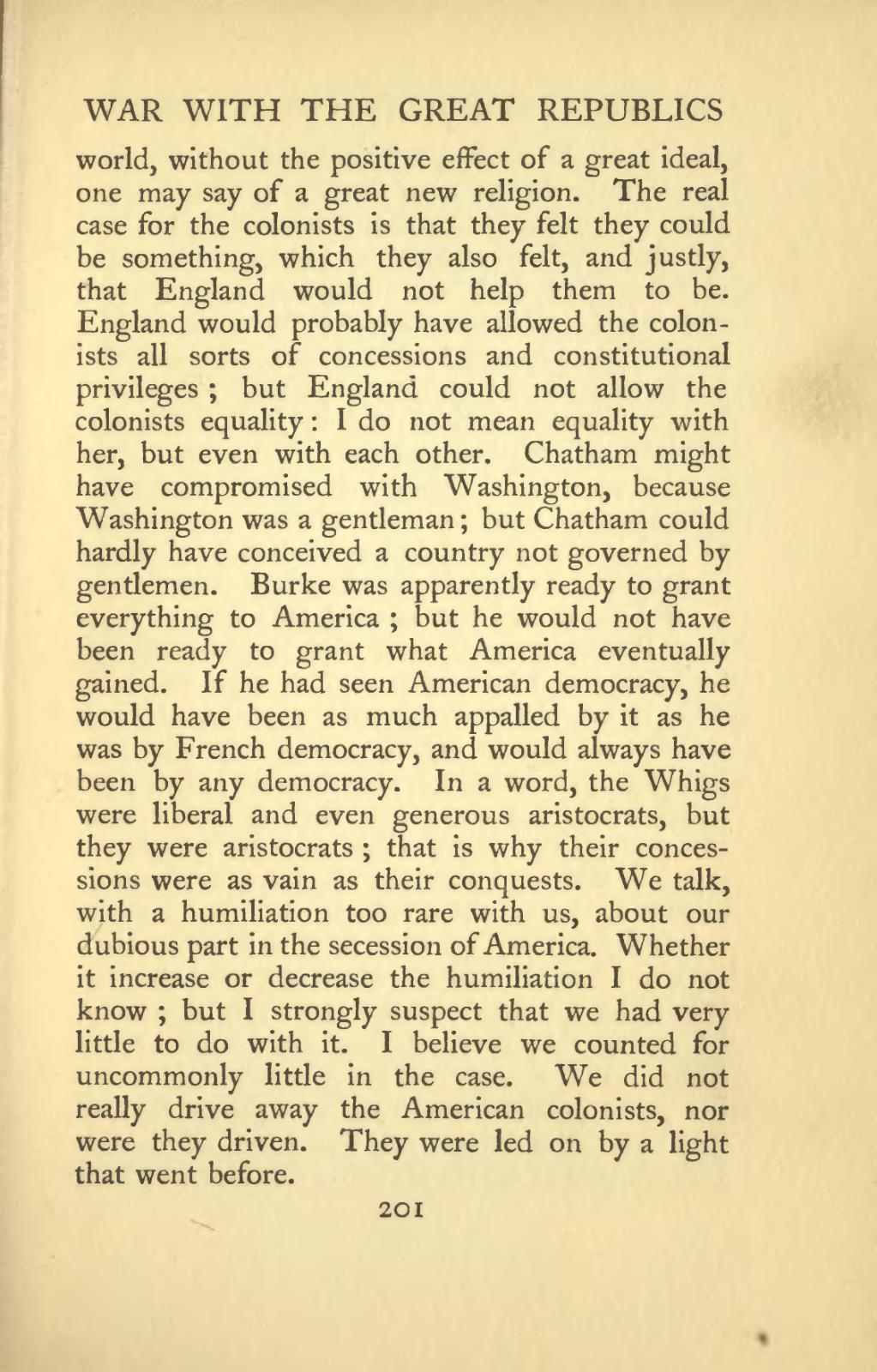WAR WITH THE GREAT REPUBLICS
world, without the positive effect of a great ideal, one may say of a great new religion. The real case for the colonists is that they felt they could be something, which they also felt, and justly, that England would not help them to be. England would probably have allowed the colonists all sorts of concessions and constitutional privileges; but England could not allow the colonists equality: I do not mean equality with her, but even with each other. Chatham might have compromised with Washington, because Washington was a gentleman; but Chatham could hardly have conceived a country not governed by gentlemen. Burke was apparently ready to grant everything to America; but he would not have been ready to grant what America eventually gained. If he had seen American democracy, he would have been as much appalled by it as he was by French democracy, and would always have been by any democracy. In a word, the Whigs were liberal and even generous aristocrats, but they were aristocrats; that is why their concessions were as vain as their conquests. We talk, with a humiliation too rare with us, about our dubious part in the secession of America. Whether it increase or decrease the humiliation I do not know; but I strongly suspect that we had very little to do with it. I believe we counted for uncommonly little in the case. We did not really drive away the American colonists, nor were they driven. They were led on by a light that went before.
201
